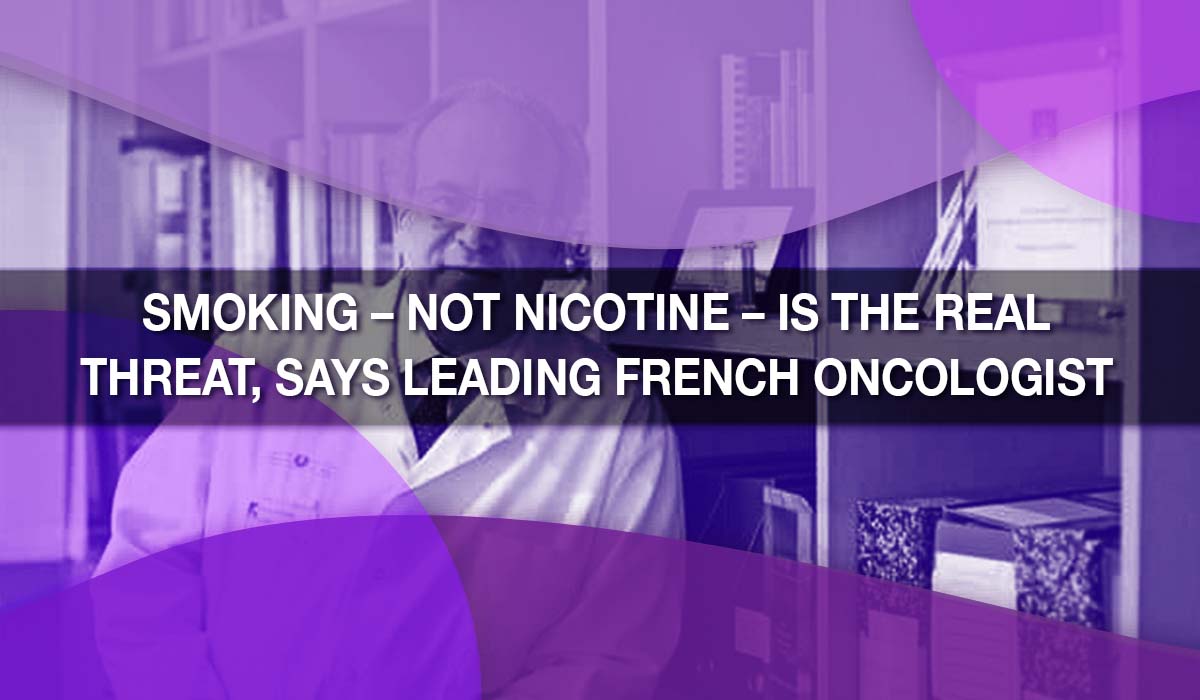
Smoking – Not Nicotine – Is the Real Threat, Says Leading French Oncologist
In a world where confusion still surrounds nicotine, one of France’s top cancer experts is setting the record straight: It’s the smoke, not the nicotine, that’s killing millions.
Dr. David Khayat, former President of the French National Cancer Institute and current Head of Medical Oncology at Paris’s renowned Pitié-Salpêtrière Hospital, has made a bold but evidence-backed statement—nicotine itself does not cause cancer.
Instead, he points the finger at what has always been the true villain: combustion.
🔥 It's the Burn That Kills
“When tobacco burns, it produces thousands of chemicals—and many of them are carcinogenic,” Dr. Khayat explained in an interview with Phileleftheros, a Cypriot newspaper. “Nicotine isn’t the enemy. The real danger lies in the act of smoking itself.”
This distinction, he argues, is critical for public health policies. Rather than demonizing nicotine across the board, we should be promoting smoke free alternatives that deliver nicotine without burning tobacco—like vapes, heated tobacco, and nicotine pouches.
📉 Harm Reduction: A Smarter Approach to Smoking Cessation
Dr. Khayat is among a growing number of medical experts urging regulators to embrace tobacco harm reduction (THR)—a pragmatic approach that aims to reduce the health risks of smoking for people who can’t or won’t quit.
“The goal is always cessation,” he emphasized. “But for those who can’t quit, we must reduce the harm.”
He supports the use of alternative nicotine products like e-cigarettes and heated tobacco as tools for transition, pointing to their dramatically reduced levels of toxicants compared to cigarettes.
And the numbers are sobering: even after being diagnosed with cancer, more than 64% of smokers don’t quit.
“For these people,” he said, “offering safer alternatives could save lives.”
🆚 WHO: Time to Rethink?
Dr. Khayat also took aim at the World Health Organization’s long standing resistance to harm reduction.
“The WHO’s current approach ignores the reality of addiction,” he said. “People engage in risky behaviors, and we must meet them where they are. We should be reducing risk—not pretending abstinence is the only answer.”
His comments come ahead of the WHO’s COP 11 Conference in Geneva, where global tobacco control policies will be reviewed. Harm reduction is expected to be a key issue.
🫁 Medical Consensus Is Shifting
Dr. Khayat is not alone. Professor Reuven Zimlichman, a top Israeli cardiologist, recently echoed a similar stance, noting that nicotine is not carcinogenic and doesn’t cause heart disease.
“Nicotine is addictive,” he acknowledged, “but it’s not what causes the damage in cigarettes. That’s caused by combustion.”
In fact, while smoking kills over 8 million people annually worldwide, vaping and other smokeless alternatives have not been linked to any of the major diseases associated with tobacco.
🔄 A Turning Point for Public Health?
Supporters of harm reduction see these expert opinions as game-changing.
Anton Israel, president of the Nicotine Consumers Union of the Philippines, responded:
“We now have smoke-free technologies that remove the harm from nicotine use. E-cigarettes, heated tobacco, and nicotine pouches substantially reduce exposure to carcinogens. It’s time regulators caught up.”
Dr. Khayat’s final message is clear:

🚨 Follow the Science:
In their ongoing research on memory enhancement through controlled nicotine use, “The Mind Study” emphasizes the following key point:
“Nicotine does not cause cancer, heart disease, or respiratory illness.
It’s the tar and thousands of other chemicals in cigarettes that do.
In fact, researchers have used nicotine in memory studies for more than 30 years. Nicotine, when used as prescribed by a physician, may be safe and may have medicinal benefits.”

It's time to rethink outdated policies and meet smokers where they are.
The science is evolving—and maybe, finally, so will the conversation.









Leave a comment
This site is protected by hCaptcha and the hCaptcha Privacy Policy and Terms of Service apply.